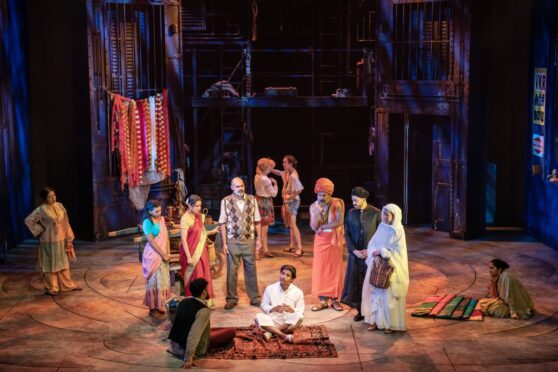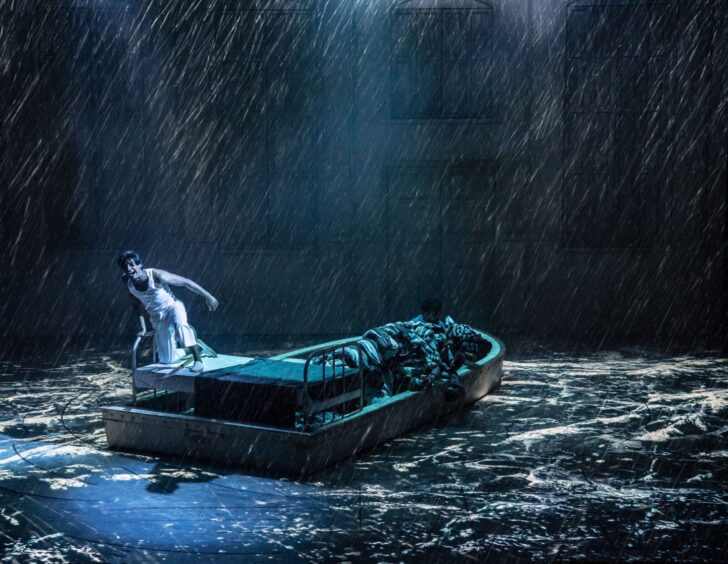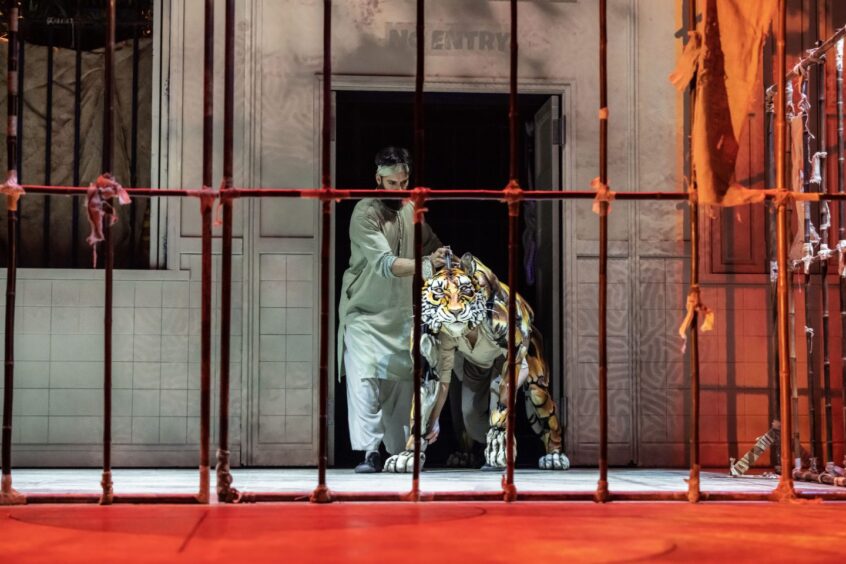“You can call me a puppeteer – but I would say that puppetry is acting,” says Romina Hytten, when asked whether she describes herself as an actor or a puppeteer.
She’s talking about her unique and ground-breaking job as one of the group of seven performers who bring the talking Bengal tiger Richard Parker to life in the stage adaptation of Yann Martel’s famed 2001 novel Life of Pi.
Already filmed to Academy Award-winning success by Ang Lee in 2012, playwright Lolita Chakrabarti’s new theatrical version opened at Sheffield’s Crucible Theatre in 2019, before transferring to the West End in 2021, where Hytten joined the cast.
She’s remained for the current, extensive UK tour, but it was in London that Richard Parker shared performance made history.
Life of Pi is a ‘feast for the eyes’
“It’s a feast for the eyes, a beautiful, visually stunning production,” she says of the show. “It blows you away, hopefully it’ll leave you thinking about it for several days afterwards. Pi goes on an incredibly moving journey, it’s a story of survival, grief, faith, family and love, as well as being an amazing puppetry show.”
In bringing to life Richard Parker, the companion of a young Indian shipwreck survivor named Pi, the performers who play him were jointly awarded the Olivier Award for Best Supporting Actor in 2022. “That was a groundbreaking moment for puppetry,” says Hytten.
“It felt so much bigger than us, we were winning it for all puppeteers and to hopefully allow for more main characters as puppets in theatre.”
She explains more about the role: “Our bodies are an extension of the puppet. You can see us, we’re not in full black clothing, but through our puppetry skills we tell the audience to not look at us and look at the puppet. It takes an incredible amount of focus, and because we rotate puppeteers, everyone has a different energy. A lot of technique and choreography is involved, but imagination is a really big part of it. It’s a fun, challenging, ever-changing role.”
Until Richard Parker, the National Theatre’s 2007 stage version of Michael Morpurgo’s War Horse was the benchmark in theatrical puppetry. “That was the first big show that really flew with main characters as puppets,” says Hytten.
“It’s definitely grown since then, you see it a lot more in theatre and you see more actors training in puppetry at drama schools and in workshops and courses.
Romina wanted to be a performer from a young age
“That’s really exciting, because it’s a special art form, and something very unique to theatre. CGI in films is incredible, but watching something coming to life in front of you is magical. When you think, I can see there are three actors there holding an object, but actually, what I believe I see is a tiger, that’s an amazing thing.”
Just as some might view puppetry as an unconventional form of acting, so was Hytten’s route into the industry. She knew she wanted to be a performer at the age of 11, so she joined the Chichester Festival Youth Theatre, where she learned the craft and first tried out puppetry.
Although she auditioned for drama school, she says that “didn’t work out for me”, but at the age of 18 she still picked up her first professional credit straight from youth theatre.
“That kickstarted things, and my career just kept on going,” she says. “I learned on the job, which has been a real privilege, and the puppetry world is quite small so a lot of it is word of mouth. I’ve been doing it now for nine years.”
When is Life of Pi in Aberdeen?
Most of her work since has been in puppetry ensemble and physical theatre shows, with Life of Pi as her first (shared) West End role. “It wasn’t the normal way in,” says Hytten. “Most people get into puppetry by training as an actor at drama school, then finding puppetry and falling in love with it – because you do have to fall in love with it. It comes with lots of physical challenges, it can be painful, you’re in uncomfortable positions, so you have to really love the art form to be able to do it.
“I would always advise a performer to train in puppetry, though, especially if you love ensemble work and physical performance, as it helps you become a better actor. I’ve taught lots of puppetry workshops with families and schools, and it’s a joy to see kids play. As children we would all bring our toys to life and make them talk and move, and puppetry is just doing that in a more highly-skilled way.”
Life of Pi is at His Majesty’s Theatre, Aberdeen, from Tuesday January 30 to Saturday February 3. For more information go to aberdeenperformingarts.com, lifeofpionstage.com.
.




